
If you want to level up your management skills, diving into the wisdom of the best management books is a must.
In the fast-paced world of leadership, continuous learning is essential.
Whether you’re a seasoned executive or an aspiring leader, these books offer timeless insights and practical strategies to help you navigate the complexities of modern leadership.
“Management is doing things right; leadership is doing the right things.”
– Peter Drucker
The best management books helps you become a better leader at work and in life. They teach you smart ways to handle problems and lead teams effectively.
When you read these books, you learn from the experiences of successful leaders. Also, they give you practical tips you can use right away to make things better.
Let’s explore the top 10 best management books that every great leader should read.
A Quick List
If you want to cut through everything and want just a list. Here’s a list of the best management books of all time for every great leaders.
- “The 7 Habits of Highly Effective People” by Stephen R. Covey
- “Good to Great” by Jim Collins
- “Leaders Eat Last” by Simon Sinek
- “Dare to Lead” by Brené Brown
- “The One Minute Manager” by Kenneth Blanchard and Spencer Johnson
- “Primal Leadership: Unleashing the Power of Emotional Intelligence” by Daniel Goleman, Richard Boyatzis, and Annie McKee
- “Measure What Matters” by John Doerr
- “The Lean Startup” by Eric Ries
- “Start with Why: How Great Leaders Inspire Everyone to Take Action” by Simon Sinek
- “First, Break All the Rules: What the World’s Greatest Managers Do Differently” by Marcus Buckingham and Curt Coffman
Best Management Books You Should Read
Effective management skills are crucial for success.
Whether you’re leading a team or striving for personal growth, the wisdom found in management books can be a guiding light.
By delving into these resources, you open doors to new perspectives and strategies that can propel you towards your goals.
1. “The 7 Habits of Highly Effective People” by Stephen R. Covey
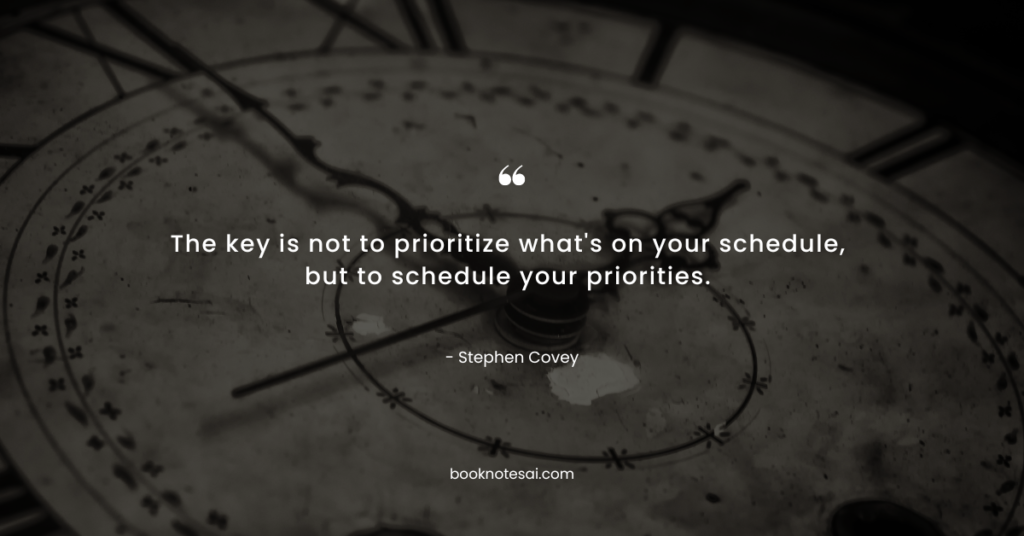
This classic book delves into timeless principles for personal and professional effectiveness. Covey emphasizes the importance of proactivity, prioritization, and collaboration in achieving success.
Key Ideas:
- Prioritize important tasks over urgent ones.
- Seek to understand before being understood.
- Synergize by valuing differences and leveraging strengths.
Why read this book? Understanding and embodying the seven habits can transform your effectiveness as a leader, both personally and professionally.
If you want to delve deeper into Covey’s principles, consider reading the book summary.
2. “Good to Great” by Jim Collins
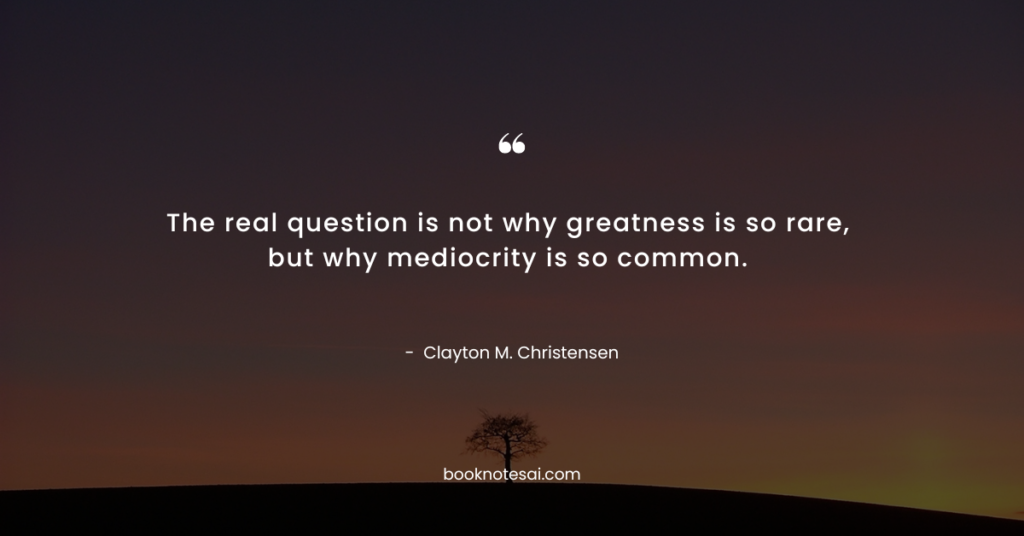
Collins explores why some companies make the leap from good to great while others don’t.
Through extensive research, he identifies key factors such as disciplined people, disciplined thought, and disciplined action.
Key Ideas:
- Level 5 leadership focuses on humility and fierce resolve.
- The Hedgehog Concept: Align passion, competency, and economic opportunity.
- The Flywheel Effect: Consistent, disciplined action leads to momentum.
Why read this book? “Good to Great” offers valuable insights into what separates truly exceptional companies from the rest.
If you’re intrigued by the journey from good to great, consider exploring the book summary.
3. “Leaders Eat Last” by Simon Sinek
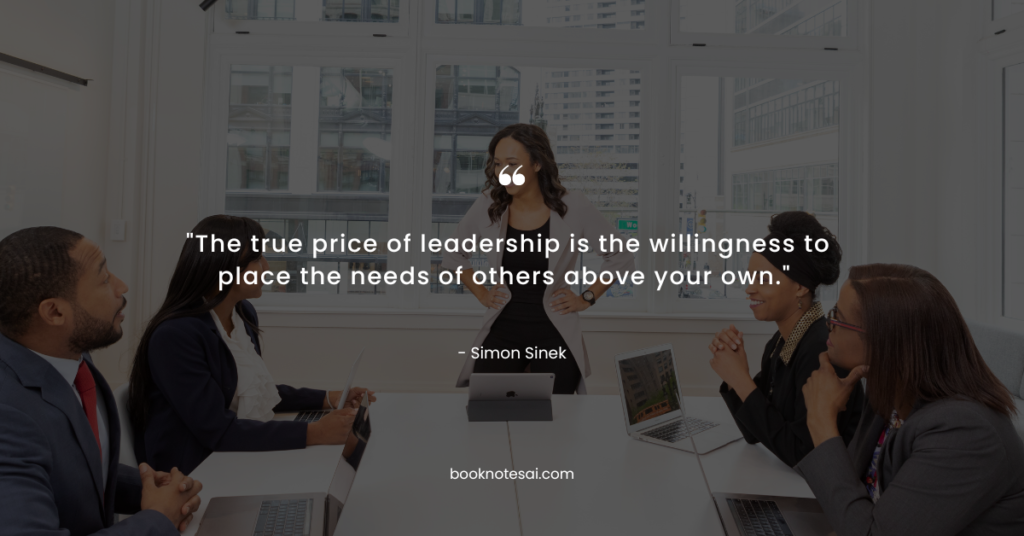
Sinek explores the concept of leadership based on trust and cooperation. He argues that great leaders prioritize the well-being of their team members and create environments where trust and collaboration thrive.
Key Ideas:
- The importance of creating a “circle of safety” for team members.
- The role of leaders in fostering a sense of belonging and purpose.
- Building a culture of trust through empathy and support.
Why read this book? “Leaders Eat Last” offers valuable insights into building a supportive and high-performing team culture.
If you’re curious about creating a circle of safety within your team, check out the book summary.
4. “Dare to Lead” by Brené Brown
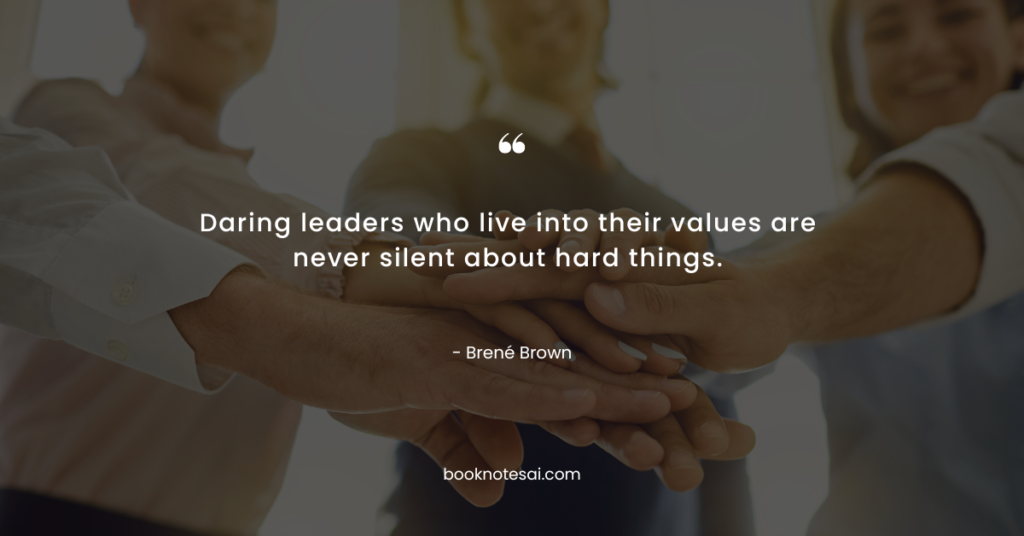
Brown combines her research on vulnerability and courage with practical leadership strategies. She emphasizes the importance of embracing vulnerability as a strength and cultivating trust within teams.
Key Ideas:
- Vulnerability is essential for effective leadership.
- Clear communication and boundaries foster trust and respect.
- Daring leadership requires courage, empathy, and authenticity.
Why read this book? “Dare to Lead” provides actionable insights for leaders who want to create inclusive and resilient teams.
If you’re ready to embrace vulnerability as a leader, explore the book summary for more insights.
5. “The New One Minute Manager” by Kenneth Blanchard and Spencer Johnson

This concise yet powerful book presents practical management techniques that focus on goal setting, praise, and redirection.
The authors emphasize the importance of clear expectations and timely feedback in driving performance.
Key Ideas:
- Goal setting should be clear, concise, and achievable.
- Provide one-minute praising for effective recognition.
- Offer one-minute reprimands for timely course correction.
Why read this book? “The One Minute Manager” offers simple yet effective strategies for improving managerial effectiveness and employee satisfaction.
For a quick overview of the one-minute management principles, check out the book summary.
6. “Primal Leadership” by Daniel Goleman, Richard Boyatzis, and Annie McKee

Goleman and his co-authors explore the role of emotional intelligence in leadership effectiveness.
They argue that self-awareness, self-regulation, empathy, and social skills are crucial for inspiring and motivating teams.
Key Ideas:
- Emotionally intelligent leaders inspire trust and loyalty.
- Effective leadership requires understanding and managing emotions.
- Building resonance with teams enhances performance and collaboration.
Why read this book? “Primal Leadership” provides valuable insights into the emotional dimensions of leadership and how to cultivate emotional intelligence.
If you’re interested in mastering emotional intelligence as a leader, dive into the book summary for more details.
7. “Measure What Matters” by John Doerr
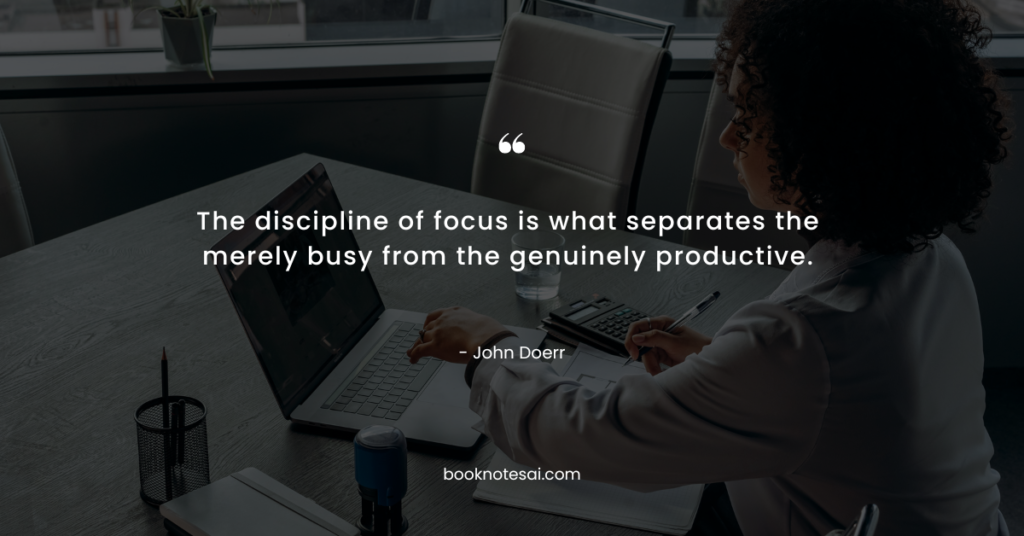
Doerr introduces the concept of Objectives and Key Results (OKRs) as a powerful framework for setting and achieving goals. He shares examples from companies like Google and Intel to illustrate how OKRs drive focus, alignment, and accountability.
Key Ideas:
- Clear objectives and measurable key results drive performance.
- Transparency and alignment foster accountability and progress.
- Continuous feedback and iteration optimize goal-setting processes.
Why read this book? “Measure What Matters” offers practical guidance for implementing OKRs and fostering a culture of execution and innovation.
If you’re ready to measure what matters in your organization, explore the book summary for actionable insights.
8. “The Lean Startup” by Eric Ries
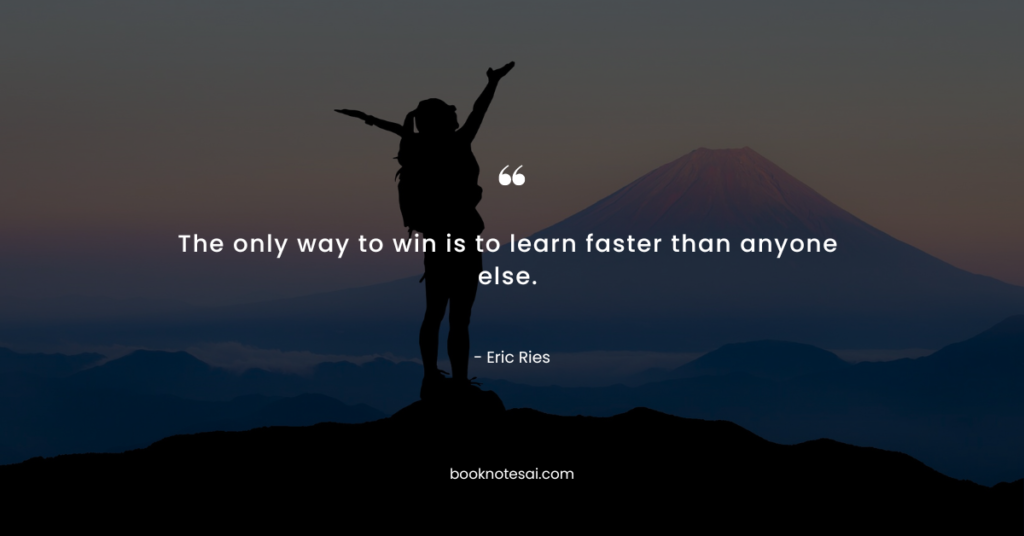
Ries introduces the principles of lean startup methodology for building and scaling successful businesses. He advocates for rapid experimentation, validated learning, and iterative product development.
Key Ideas:
- Start small, iterate quickly, and validate assumptions.
- Build-Measure-Learn feedback loop drives continuous improvement.
- Pivot or persevere based on customer feedback and market insights.
Why read this book? “The Lean Startup” provides a blueprint for entrepreneurs and intrapreneurs to navigate uncertainty and build sustainable businesses.
If you’re ready to embrace the lean startup mindset, explore the book summary for practical strategies.
9. “Start with Why” by Simon Sinek
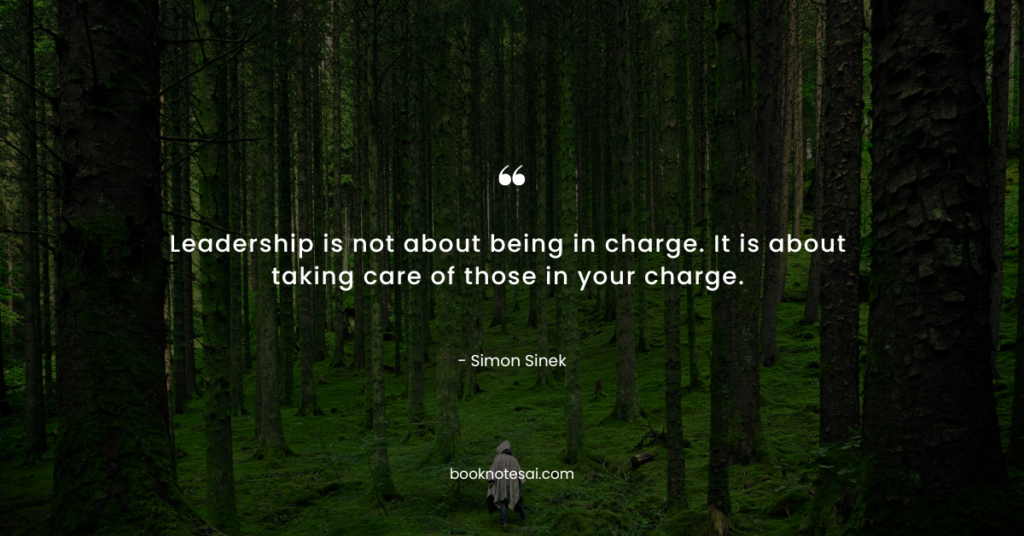
Sinek explores the power of purpose-driven leadership and the importance of starting with why.
He argues that inspiring leaders and organizations communicate their purpose and beliefs to attract loyal followers and customers.
Key Ideas:
- The golden circle: Why, How, What.
- Purpose-driven organizations inspire loyalty and engagement.
- Clarity of purpose guides decision-making and strategic direction.
Why read this book? “Start with Why” offers profound insights into the role of purpose in leadership and business success.
If you’re curious about the power of starting with why, explore the book summary for deeper insights.
10. “First, Break All the Rules” by Marcus Buckingham and Curt Coffman
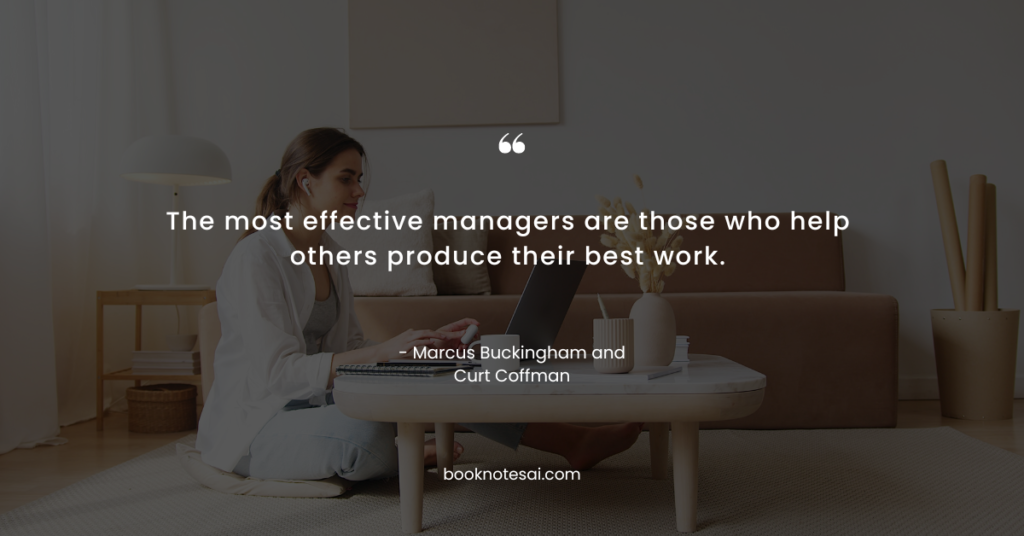
Buckingham and Coffman challenge conventional wisdom about management and identify key practices that drive employee engagement and performance.
They emphasize the importance of focusing on individual strengths and creating a culture of trust and autonomy.
Key Ideas:
- Great managers focus on strengths, not weaknesses.
- Employee engagement is crucial for business success.
- Trust and autonomy empower employees to excel.
Why read this book? “First, Break All the Rules” offers practical insights and actionable strategies for building high-performing teams and organizations.
If you’re ready to challenge traditional management practices, explore the book summary for actionable insights.
Dive into these best management books to gain valuable insights, practical strategies, and inspiration to become a more effective leader. Happy reading!
If you’d like to explore these books further, consider checking out the 1,000+ book summaries for deeper insights.
Keep Reading…
- Best Entrepreneurship Books
- Best Inspirational Books
- Best Productivity Books
- Best Motivational Books
- Best Life-Changing Books
- Best Psychology Books
- Best Leadership Books


